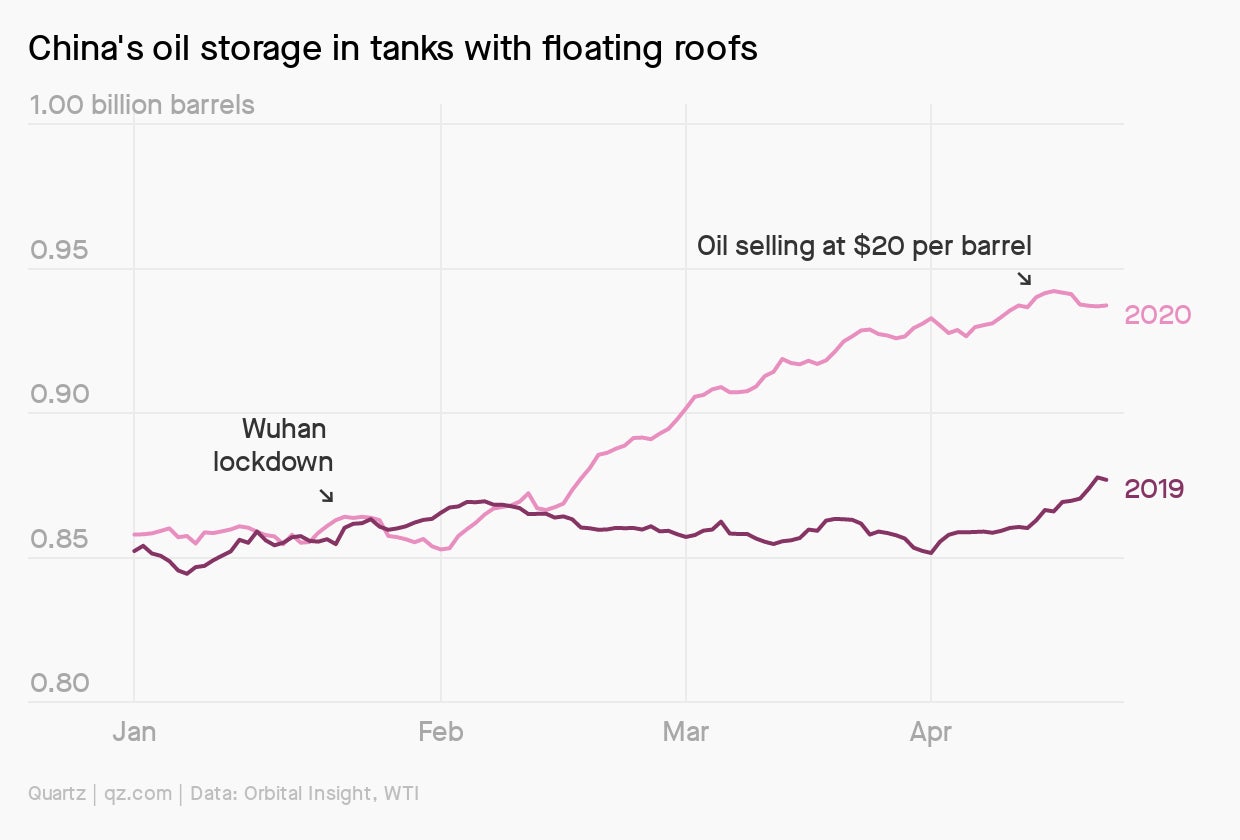UK silence, French exit strategy, animal disease detectives
Good morning, Quartz readers!

Good morning, Quartz readers!
Here’s what you need to know
France presents its lockdown exit strategy. Prime minister Edouard Philippe will lay out before parliament his plan to guide the country out of its strict social distancing measures. Details are expected on which businesses can re-open immediately, and masks on public transport could be made compulsory.
The EU could offer its banks capital relief. The bloc’s financial services chief Valdis Dombrovskis is expected to propose that EU banks be allowed to ease how they calculate their leverage ratio, which would enable banks to offer more loans to companies.
The UK holds a minute of silence. It will take place at 11am to pay tribute to key workers, including at least 90 National Health Service staff who have died from the coronavirus.
New Zealand begins easing out of its lockdown. After the country shifted down a notch from its highest alert level overnight, some 1 million Kiwis are now back at work after more than a month of strict lockdown measures. Meanwhile, the Australian dollar climbed to a six-week high as the country also began easing controls.
The US said it would recognize Israel’s annexation of the West Bank. The comments from the US state department reinforce president Donald Trump’s Middle East peace plan unveiled in January, which gave Israel the green light to annexations that Palestinians say will spell the end of any hope for a two-state solution.
2020 is likely to be the hottest year on record. US weather experts say there’s a 75% chance this year will break the record, last set in 2016, despite pandemic-related emission dips. The milestone is particularly unsettling because this isn’t an El Niño year, which is usually associated with higher temperatures.
Join us this Thursday for “Career Building in Quarantine,” a virtual workshop from Quartz at Work. Whether driven by ambition or need, more people are job hunting than ever right now. In this one hour workshop, we’ll speak with a group of experts on the process, who will teach you everything you need to know to stand out and continue to build a meaningful career while in quarantine. Click here to register.
Charting China’s oil-buying spree
Data from Orbital Insight show 937 million barrels of oil in China’s observable storage (✦ a Quartz member exclusive). It’s the highest level the company has measured since it began tracking in January 2017, and it provides a valuable indication of broader global trends.

Crude isn’t the only commodity China’s stockpiling during the pandemic. The country plans to store 10 million tons of soybeans, 20 million tons of corn, and 1 million tons of cotton, according to a report from Reuters.
- People are now embracing modes of exercise with roots that stretch back much further than the exercise tape and home yoga mat.
- Need a good home workout jam? Music streaming and TikTok are boosting Track 1 hits, and possibly killing off the album in the process.
- The cubicle may be on its way back. Physical barriers in workplaces might be reviled, but they also keep you safer from your colleagues’ sneezes.
We’re obsessed with memory foam
Sink into the good stuff. The viscoelastic material is found in football helmets, motorcycle seats, and bulletproof vests. By 2023, the US market for memory foam mattresses and pillows is projected to balloon to $8 billion—but the bed-in-a-box industry is excessively wasteful. Plus, the chemicals it emits raise health concerns in addition to off-putting smells. Lie back and ponder it all with the Quartz Daily Obsession.
Surprising discoveries
The Romans invented recycling. Excavations at Pompeii show that mounds of rubbish piled outside city walls were collected, sorted, and resold.
Australia is training animal disease detectives. Vets will learn how to identify new pathogens that appear in animals, in a bid to prevent a future pandemic of a zoonotic disease.
Belgians are being urged to eat chips twice a week. Potato farmers don’t want the huge stash of surplus spuds in warehouses to go to waste.
The pandemic can’t bring down the peanut. The humble crop’s success is bad news for fashion: Farmers often choose between planting peanuts and cotton.
A bored artist has given himself a tattoo for every day under lockdown. There’s just one problem: he’s running out of space.
You asked about accessibility in a masked world
I read lips and look at gestures to just get by. How am I to survive when people are masked?
Elaine, we knew just who to ask. Quartz curator and deaf individual Patrick deHahn—who just wrote about this very predicament—responded, “You aren’t alone. Face masks are a significant communication barrier for many. One workaround is speech-to-text smartphone apps like Ava or Google’s Live Transcribe to caption your everyday conversations. A small microphone that plugs into your phone’s audio port may be needed for accuracy, especially with physical distancing.”
He also had some last resorts to recommend: “Writing with a whiteboard or pen and paper is always a good fallback. Lastly, there are transparent masks (and YouTube tutorials to make your own) but mass adoption is needed for it to really work for everyone.”
Our best wishes for a productive day. Please send any news, comments, frites with mayonnaise, and Roman recycling to [email protected]. Get the most out of Quartz by downloading our app on iOS or Android and becoming a member. Today’s Daily Brief was written by Mary Hui and edited by Isabella Steger.